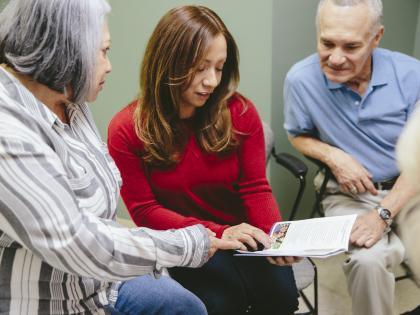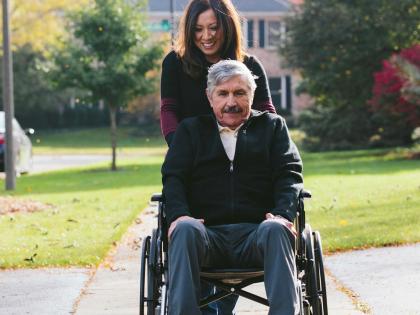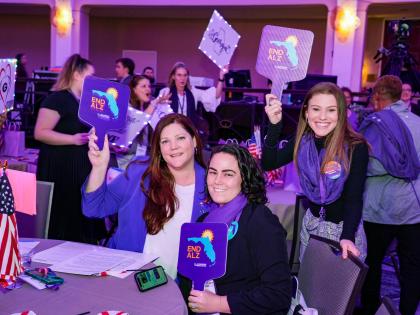Florida State Alzheimer’s Plan Overview

In 2012, the Florida legislature passed HB 473, establishing the Purple Ribbon Task Force (PRTF) within the Department of Elder Affairs, consisting of 18 culturally diverse individuals appointed by the governor, the president of the Florida Senate, and the speaker of the Florida House of Representatives. The legislation required the PRTF to submit a report of its findings and date-specific recommendations in the form of an Alzheimer’s disease state plan. The Task Force published the Final Report and Recommendations, State Plan on Alzheimer’s Disease and Related Forms of Dementia (ADRD) in August 2013. Although the legislation terminates the task force with the submission of the state plan, the findings and recommendations provide a catalyst to mobilize a state response to this public health crisis and a guide to modernize state policies related to people living with dementia. In 2019, House Bill 449 (Chapter Law 2019-147), Section 430.501 F.S., was enacted, requiring an updated State Alzheimer’s Plan every three years with a separate annual report required. The bill also updated the membership of the state’s Alzheimer’s Disease Advisory Committee, which supports the State Plan development. An updated Alzheimer’s Disease State Plan was published in November 2020.
Florida 2026 Policy Priorities

Establish a Statewide Public Awareness Campaign
Nearly 580,000 Floridians are living with Alzheimer’s, but as many as half of them are not formally diagnosed. Residents across the state must understand the importance of early detection and diagnosis. Early intervention can provide individuals living with dementia access to treatments to slow disease progression and more time to plan for the future, adopt lifestyle changes, participate in clinical trials, and live more fully with a higher quality of life for as long as possible. The Alzheimer’s Association is calling on state lawmakers to establish a statewide public awareness campaign on Alzheimer’s and other dementia.

Secure Access to Services from the Alzheimer’s Association Brain Bus
The Brain Bus is a mobile outreach initiative that prioritizes diverse and underserved populations throughout Florida. This program provides information on healthy living for the brain and body, early detection and diagnosis, caregiver resources and care planning, as well as emergency preparedness. To continue serving all 67 Florida counties and the growing number of Floridians living with dementia, the Alzheimer’s Association is urging lawmakers to allocate $600,000 to continue funding the Brain Bus.
Increase Respite Funding for Dementia Caregivers
More than 870,000 dementia caregivers in Florida provided 1.4 billion hours of unpaid care in 2025, often enabling their loved ones to live in the community instead of moving into more costly residential long-term care. However, over half of the caregivers in Florida are living with chronic health conditions. Respite care provides necessary relief to family caregivers, allowing the caregiver to take care of personal medical issues, complete tasks outside of the home or simply enjoy time off from the demands of caregiving. Currently, over 16,000 caregivers are on the waitlist for respite services in the state. The Alzheimer’s Association is calling on lawmakers to increase respite care funding to eliminate the waitlist.
Ensure Dementia Training for Public and Professional Guardians
Dementia can significantly affect a person’s ability to make decisions, and in the absence of other advanced directives, people living with dementia may need the assistance of a guardian or conservator. Guardians are supervised by the courts to manage the day-to-day lives of individuals. Training is imperative to equip guardians to protect and serve vulnerable individuals living with Alzheimer’s and other dementia. The Alzheimer’s Association is advocating for guardians to receive one hour of dementia training in the initial 40-hour training orientation.
Sign Up to Learn About Advocacy Opportunities in Florida

Find My Chapter
Together, we’re making an impact. Find an Alzheimer’s Association chapter in your community for more ways to engage.
Contact Us
State Affairs Contact: Tyler Jefferson
Phone: 904.299.5698
Email: tdjefferson@alz.org
579,900
people living with Alzheimer’s in Florida
870,000
Floridians are providing unpaid care
$3.7 Billion
Medicaid cost of caring for people living with Alzheimer’s (2025)
6,397
deaths from Alzheimer’s disease in 2022
15%
in hospice with a primary diagnosis of dementia
168.2%
increase of geriatricians in Florida needed to meet the demand in 2050
Resources to Drive Change in Florida
The following resources developed by AIM and the Alzheimer’s Association will help you learn more about the issues impacting people living with Alzheimer’s and their caregivers, how Florida policymakers are addressing these gaps, and how you can help drive change.